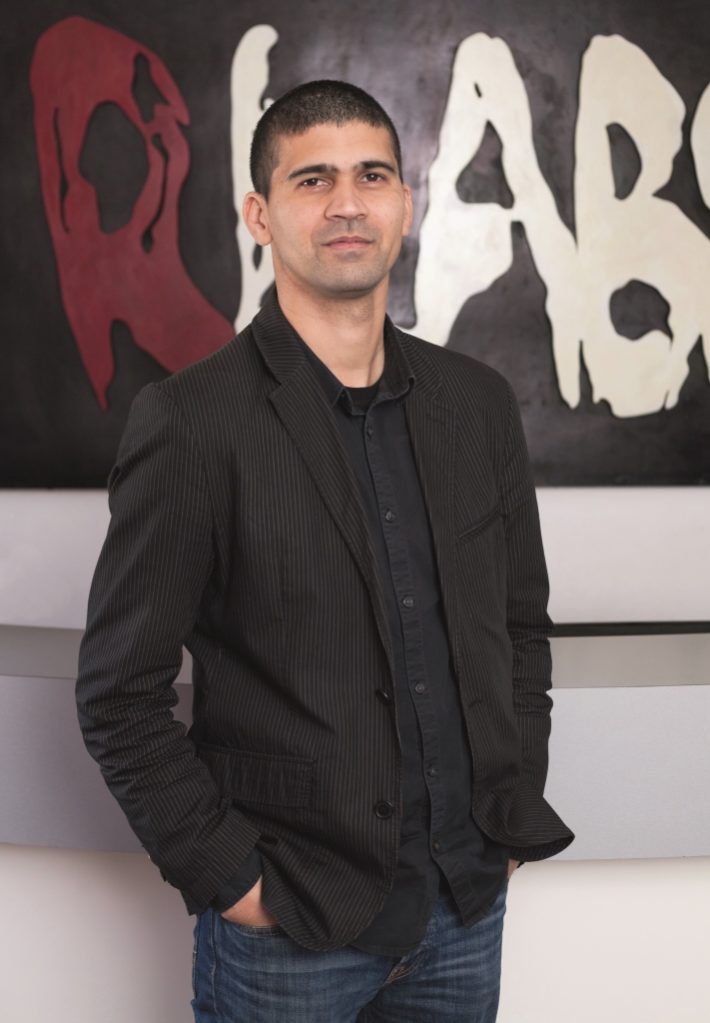When Marlon Parker, 36, founded Reconstructed Living Lab (RLabs) in the poverty-stricken township of Athlone near Cape Town, where unemployment, gangsterism and drug abuse are rife, his main aim was to give people hope. He quickly realized the best way to do this was to create sustainable ways of income generation.
In 2008, Parker launched a volunteer-driven IT and social media training program for the many unskilled people in his community. The RLabs Academy, as he called it, has trained more than 14,000 people in the past five years. It offers 15 courses, from technology to entrepreneurship, social innovation and project management.
As the program grew, Parker launched Living Labs, a sideline project where newly trained people create mobile and internet solutions for social change. Products include mobile chat platforms, crowd-sourcing mobile applications for consumer pricing data, mobile publishing and web data analytics applications.

“I realized that the human capital we are creating is a major resource. We could compete with other service providers. We started selling our products to companies, or hire out consultants to firms that want to leverage their social and digital media strategies,” says Parker.
Loading...
Parker realized that RLabs, which employs 70 full-time staff, needed to think entrepreneurially to sustain itself in the long-term. In 2010, he started an entity to sell Living Labs’ community-focused technologies to the private sector.
“We get ideas to a stage where they can become businesses in their own right,” he says.
One of those successful ideas is Jammix, a counseling service application that allows people to chat to a counselor using a text messaging system on their cellphones. More than three million people in poor communities have been using the service.
“When we saw how popular and useful the application was, we commercialized the technology and sold part of it to external investors for a substantial amount of money,” says Parker.
Another RLabs invention is Uusi, an application that allows artisanal, semi- and unskilled workers to browse job ads on their cellphones. The free service, financed by advertising, has been used by more than 300,000 people, with one out of five finding work.
“The best thing about the application is that it was developed by a man who was unemployed for almost 20 years. He was trained by RLabs and now makes money helping others find jobs,” explains Parker.
When Parker realized how many ideas developed in the Living Labs had the potential to become businesses, he launched an incubation program. Every year, RLabs selects seven or eight product ideas and, with a financial injection of $20,000 each, grooms them into fully-fledged ventures within nine months.
In just over two years, RLabs incubated 22 businesses. It owns a small equity stake in each of them, using the profits to fund new ventures.
“Of those 22 businesses, we already sold three and managed to make 10 times our investment back,” Parker says with pride.
Today, Parker replicates the RLabs model by incubating other social enterprises through impact investing and social franchising around the world.
“We have expanded to 20 countries, mainly in Africa, but also in Europe, Southeast Asia, Canada and Brazil. For us, it’s amazing to see something that started in the Cape Flats to be used in the United Kingdom,” he says.
In South Africa, RLabs created more than 1,000 full-time jobs through its offshoots. By the end of the current financial year, the social enterprise expects to make $1 million.
Parker keeps pursuing new opportunities. His goal for the next two years is to establish RLabs on seven continents.
“The only problem is who will be going to go to Antarctica,” he jokes.
“If you create something that has a big impact, it makes a big echo. I want to create something that echoes into eternity.”
Parker has a skill for creating something out of nothing, because he was once an unskilled worker from South Africa’s poverty-stricken Cape Flats.
“I grew up in the typical scenario: single parent, lots of siblings, all living in my grandmother’s house, in an area where there were gangs, lots of drugs and hardly a future,” he says.
Although he was the first in his family to complete high school, there was no money to attend university. As the eldest of five, Parker was expected to contribute to the family income and took a job pushing trolleys at Cape Town’s international airport. Despite his slim prospects, Parker kept dreaming. He remembers yearning to join the middle class.
“My biggest ambition in life was to get a job where I can wear a shirt and a tie.”
For two years, he saved every penny until he had put aside $50—just enough to pay a university administrative fee.
Parker quit his airport job to study computer programming at the Cape Town Peninsula University of Technology. Because he was broke, he walked the 20-odd kilometers to and from campus every day.
What saved him from falling into deep debt was his knack for statistics—a subject most students struggled with. He became a statistics tutor before graduating, at the age of 21, financing his studies along the way.
Parker worked as a business intelligence consultant for an IT company for a while, and later as a full-time lecturer. But his entrepreneurial spirit propelled him to do something bigger.
“I wanted to use technology to bring about social change. Although the term social entrepreneur wasn’t even coined yet,” he says.
With RLabs, he has done good and made a profit.
Loading...
